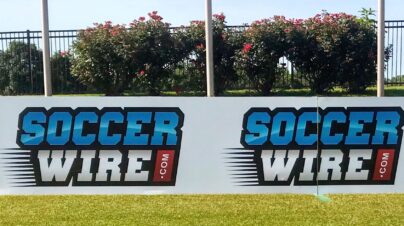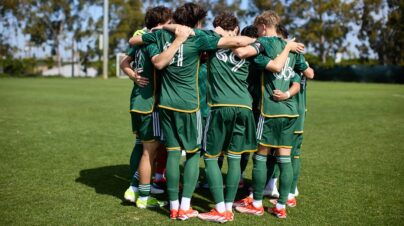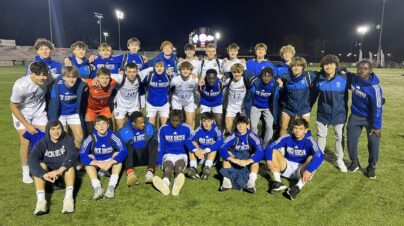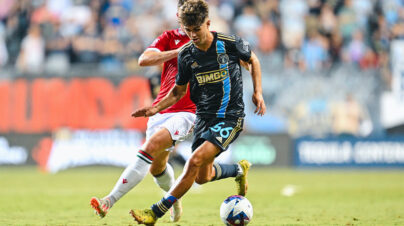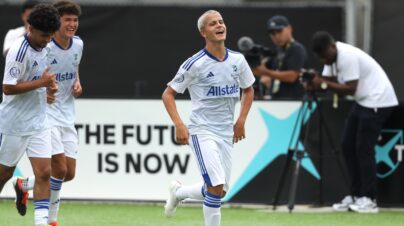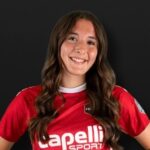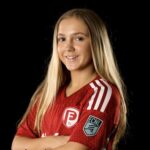Q&A: MLS VP of Sporting Development Ali Curtis talks all things MLS NEXT
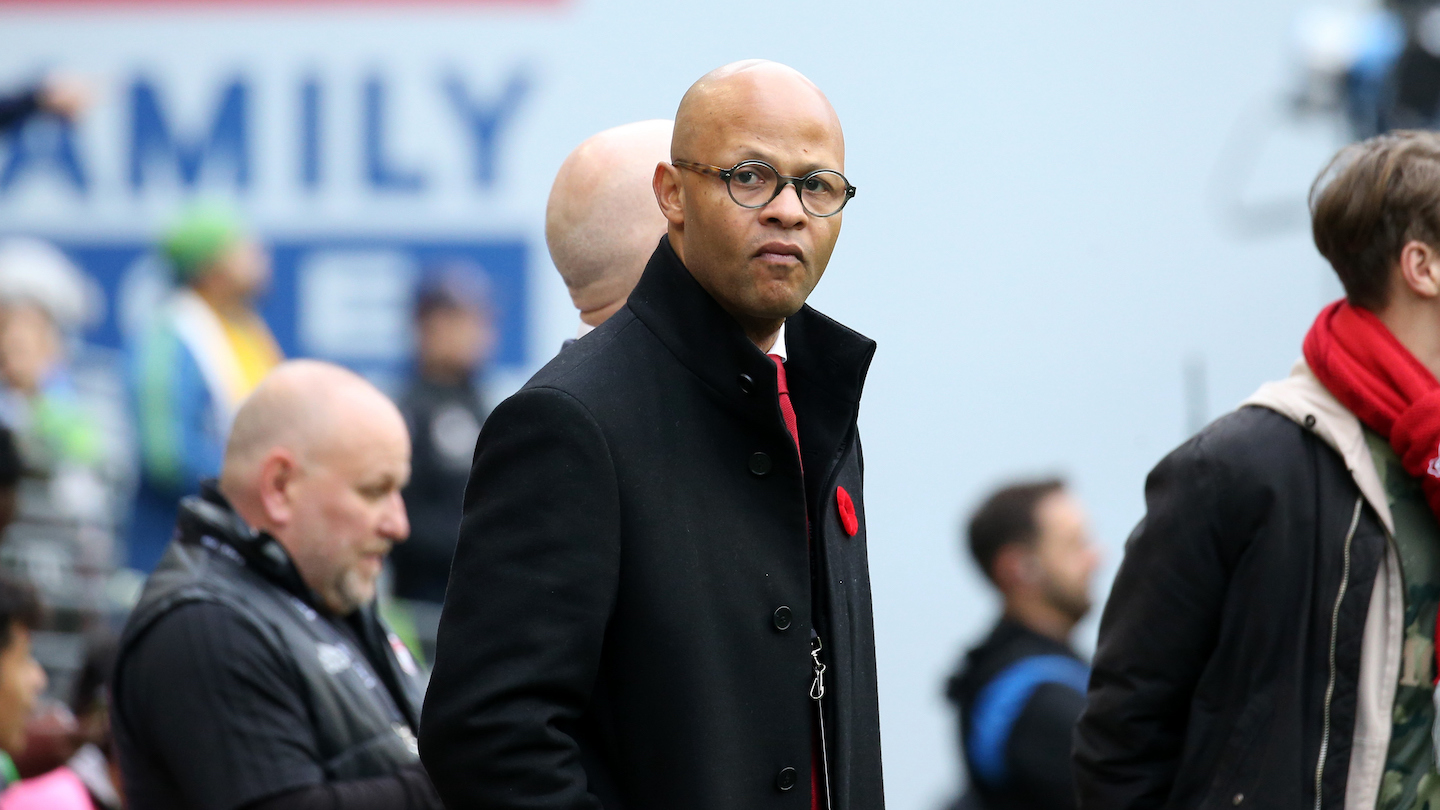
The 2024-2025 MLS NEXT season will be starting later this month with plenty of high-level competition and a continued focus on player development.
Entering its fifth season, the league will see 151 clubs and 753 teams competing across their U13-U19 age divisions. The season will once again include multiple national events including the Generation Adidas Cup, MLS NEXT Flex, and the MLS NEXT Cup.
Ahead of the league’s upcoming season, SoccerWire’s Sean Maslin spoke with MLS Senior Vice President of Sporting Development Ali Curtis about the upcoming MLS NEXT season, the league’s player development goals, the Development Grant program, its relationship with U.S. Soccer, MLS Season Pass on Apple TV, and refereeing and coaching development.
Curtis has extensive experience in the game and in MLS, having previously served as the league’s Senior Director, Player Relations and Competition as well as the Sporting Director of the New York Red Bulls and the General Manager of Toronto FC.
Sean Maslin: What are your thoughts on the state of MLS NEXT as we head into the 2024 2025 season?
Ali Curtis: I think we have a lot to be excited about. We have been in regular contact with all of our clubs ahead of the upcoming season. Going into our fifth season we have more teams than we have ever had and we have more players than we have ever had so it should be super competitive. Every year we are looking to get stronger and better and every year is a chance for new stories to emerge and new players to breakthrough. I know that our coaches, players and the league office are ready to get started.
SM: What are some areas that MLS NEXT is looking to improve upon this season, both from a competitive standpoint and also on the operations end?
AC: We have a new leadership team with MLS NEXT so we are excited that this will be our first full season together, myself included, and so we’re excited to roll up our sleeves to ingratiate ourselves with all the teams, all the coaches, all the players, and all of the events. We got a taste of it last year but we are excited to have our first full season. During the offseason we have had several conversations with the Academy Directors and our different coaches as well as the various committees so we are all prepared and ready to have a really exciting season.
At MLS NEXT, I think we always have an opportunity to improve and the best word to use is evolve. I would say that we have a real opportunity to evolve both on the field and off of the field. That includes how we execute our different tournaments, how our games are conducted on a week-to-week basis, how we view the different processes and protocols are conducted on a week-to-week basis and how we evolve over time. So how we evolve and grow is important. The bulk of our player development is executed by all of our clubs and their coaches who dedicate their time and energy into their players. Our parents and their families also play a major role in player development. They put in so much work and support for their kids to live out their dreams and become the best versions of themselves as players and as people. All of these elements make up a player’s journey. As a league, it is really important that we continue to look at everything we do every single year and evolve so that we can get stronger as a league and continue to make better players and better people. That is something that we are focused on every single day.
SM: In terms of developing professional players, how has the player pathway changed since your playing days to now with the MLS NEXT-MLS NEXT Pro- MLS pathway?
AC: Yeah, it’s changed substantially. I think the opportunities that players have are now are more than they have ever had. MLS launched in 1996 and the league has grown in so many ways and you now have so many domestic players for kids to aspire to be and can dream to become a professional player. MLS is not in every single market but you can see it on Apple, you can see it on TV, and younger players are able to go within proximity of their home go watch a game live. Those experiences improve player development and allow for players to dream of what can be attained.
When we also talk about helping players to be the best version of themselves it is also important to talk about training. Younger players in our MLS NEXT Academies now have the ability to train in real top-tier professional environments that didn’t exist 15-20 years ago. Players now have more opportunities to move along the pathway and learn what it takes to make it at the next level. We now have over 150 MLS NEXT clubs alongside 29 MLS NEXT Pro clubs and our 30 MLS teams so there are so many opportunities for players to find the right opportunities for them and their families.
SM: What’s the current relationship like between MLS and U.S. soccer when it comes to player development?
AC: U.S. Soccer are the governing Federation and I think that is important that we have a communicative relationship with all of the leagues within the U.S. As a league, we have an ongoing relationship with U.S. Soccer and we are in regular contact with them talking about different strategies, different processes to help drive player development.
When you look at the U.S. Youth National Teams whether it is the Olympics roster, the under-20s, under-17s, or the under-15s the vast majority of those players are all coming from MLS NEXT. When you think about the professionals that exist in this country they are coming from our league and MLS NEXT. So there are a lot of good things happening in terms of player development. There are still opportunities to grow and develop but the future is bright.
SM: You mentioned the national team call-ups. This year, Salif Leintu, who plays for Bethesda SC in MLS NEXT, finished third with Mali at the under-20 World Cup. MLS NEXT across all age groups are receiving call-ups from like national teams across Africa, Asia, Europe, South and Latin America. Obviously it is great to see MLS NEXT having a heavy representation with the U.S and Canada. But from a league perspective, how does it feel to see players from MLS NEXT receiving this level of attention from national teams across the world?
AC: I think It’s reflective also in our first teams in MLS when you look at the number of countries that are represented within our player pool and but also when you think about the United States and Canada and you think about how diverse both countries are. It’s important that we have a league that is reflective of the culture and the country that we live in. So having players from several different backgrounds is important and the fact that they’re getting recognized that the youth national team level is incredible, whether that’s in Mexico, whether that’s in some of the African countries that you mentioned, whether that’s the U.S. and Canada it is great and I think it’s a testament to all the hard work and dedication of the coaches and the players in terms of the recognition that that they’re receiving in the call-ups that they’re getting at the national team level.
SM: Having worked in youth soccer for a number of years, one of the chief concerns from parents and players has been the state of refereeing in the U.S. How cognizant is MLS of this issue and at the MLS NEXT level and in what ways is the league working with state associations and US Soccer not just to improve the number of referees but also the quality of the referees?
AC: I think we’re in the business of not just developing players but also developing coaches and referees. I think the fact that we are trying to integrate all of our different platforms, whether that’s MLS, MLS NEXT Pro, and MLS NEXT so that it is not just a pro player pathway, but it’s also a referee pathway, it’s a coach pathway, and it’s also a medical staff pathway that helps ensure that we are developing all facets of our game. We want that pipeline for referees so that they can cut their teeth at the MLS NEXT level and to continue to develop and evolve. So we are in constant communication with PRO (Professional Referee Organization) and continuing to provide additional training opportunities at many of our tournaments and events.
SM: How does the league support coaching development?
AC: We are in constant communication with all of our coaches and our Academy Directors throughout the year and we offer coaching training courses at all of our live events. Our Vice President of Player Youth and Development Fred Lipka leads those sessions which help lead our coaches in our player development efforts. We try to facilitate different trainings and different education opportunities for our coaches to continue to develop. We view the soccer space as very similar to the education space and our coaches are our teachers. The difference is our discipline is soccer as opposed to math or science. It is important that our coaches are able to communicate with players in a clear way not just tactics but also player and personal development. Offering as many different resources helps give them the tools to help our players grow.
SM: Last year, MLS NEXT announced the Development Grant program. What are your overall thoughts on that program as a whole and what has been the response from clubs so far?
AC: It’s been positive. I think the important thing is to continue to support the soccer ecosystem around the country. There’s so much hard work that is being done by our players and by coaches and our clubs so to have a program that can support that growth and support that effort, hard work and investment I think is really important.
You know, the story that that you want to really kind of like connect to is just Benjamin Cremaschi, who we all know now and has really come onto the scene in the last twelve months. He’s player that played for an Elite Academy in MLS NEXT in Weston FC and went from Weston to Inter Miami’s Academy to their MLS NEXT Pro team. From Miami’s MLS NEXT Pro team he advanced to the first team and playing with Messi, and then got called into the to the U.S. Men’s National Team. We think that that is a great story for the Development Grant program and encapsulates what we’re trying to do. It’s why we wake up in the morning, to try to work extremely hard, so we can have more of those stories every single year.
SM: I want to ask you about MLS NEXT and Apple TV. Over the past two years, more MLS NEXT games and events like the Generation Adidas Cup and MLS NEXT Cup have been more available to the general public as well as special features to get more insight into the players. What is that relationship between the league and Apple in terms of creating content around MLS NEXT and where would you like to see it go?
AC: Original content is really for the players, the parents, the clubs, and the league to showcase what is happening around our league but also from a talent identification and scouting perspective. Having quality content being produced for our players will help them gain visibility both at the national team level but also in the college recruiting process. Content is really, really important and Apple has done a great job at connecting the dots in that way. I want to say that we have had over one hundred games broadcast on Apple TV in over 100 different countries which we would have never experienced prior to our partnership. Our relationship with Apple is critical to MLS NEXT’s growth and we set is a benefit to our league and asset in developing our players.
SM: You’ve been able to transition from a playing career to working in multiple front offices to now working as the Senior Vice President in MLS. A lot of players to continue to give back to the game after their playing careers are over and help the sport grow. If you could give one piece of advice to a younger player that wants to play at a high level but then also give back to the game what would it be?
AC: I think that it’s important to set goals and standards in your playing career but then also in your life. As we all have seen with the game of soccer the momentum in a match can shift or change and some things you have control over, while others you don’t. But what you can do is prepare yourself each and every day to work extremely hard both on the field and off of it. That has always been my advice to players: to work extremely hard on the field and off of it. Set standards and goals and aspects of your life, not just soccer. If you do that, you will know that when your playing career is over that you’ll have opportunities in other ways.
At the MLS NEXT level, we are trying provide opportunities to continue to contribute to and stay involved with the game both in coaching and at the administrative level. This is also an opportunity for improvement and opportunity for us to continue to evolve our platform as it pertains to our mentorship and speaker series programs. We have so many former professional players that are still involved with the game or have left and are involved in other industries. It is important for us to maintain those connections between our former and current players so we can continue to help them develop. Over the next twelve months, we are focused on creating additional programming to support all of our players and their families in this process.
I also want to give a shout out to Vardar Soccer Club in Michigan which is the club that I grew up playing for and is now an MLS Elite Academy club. I am really grateful to them because I had really good coaches, teammates, and parents at that club that cared about me as a person and as a player.
At the end of the day you can have all of these kind of complicated and scientific processes and protocols that you can kind of implement to help you develop. But you know, I think it’s always good to ensure that you stick to your fundamentals and you stay grounded.

